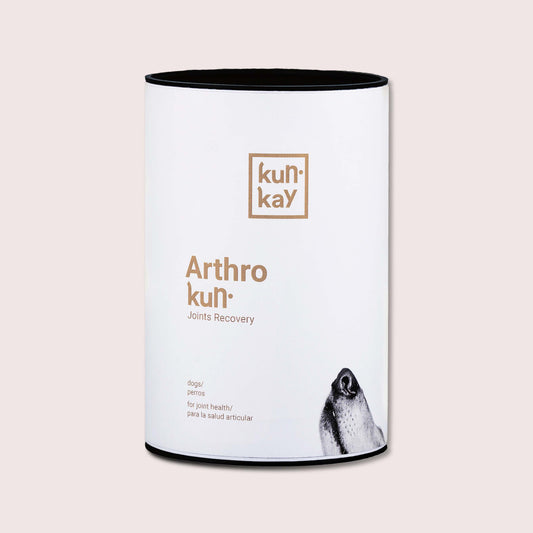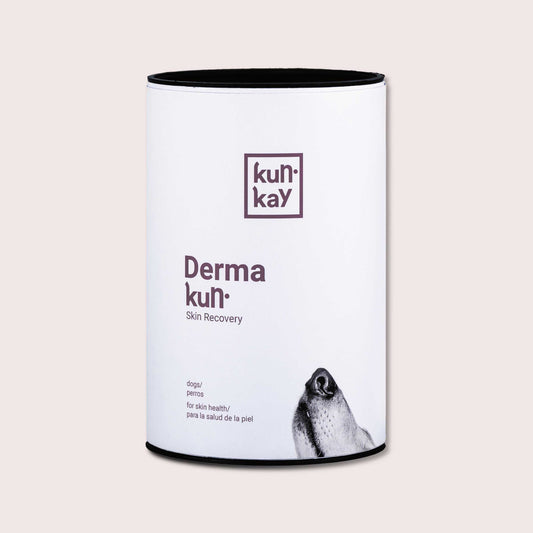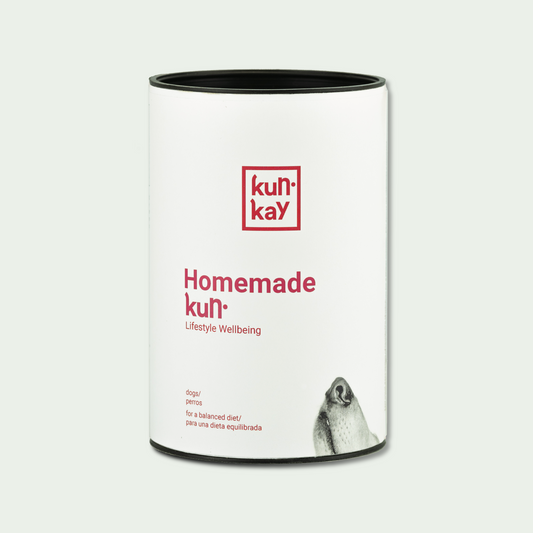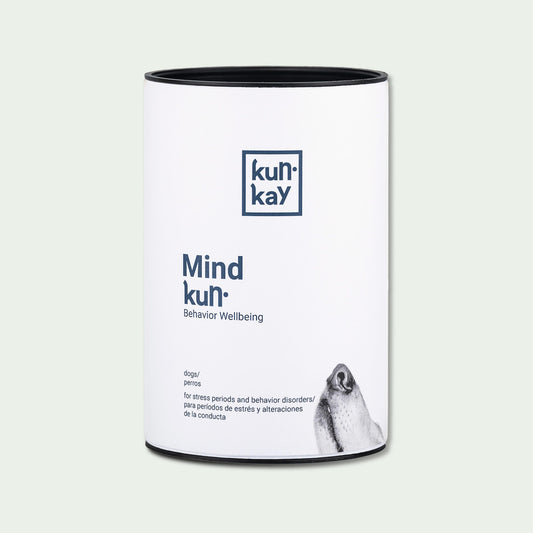What to do if my dog is constipated? Causes, symptoms, and treatment

Constipation in dogs is a fairly common problem, especially in older dogs. Heat, travel, or changes in routines can alter the functioning of our four-legged companion's digestive system; something that undoubtedly causes them discomfort and even pain, potentially evolving into a serious problem if constipation lasts too long or becomes a chronic condition.
Recently, we talked about another common problem in dogs also related to the digestive system. We told you everything you needed to know about gastroenteritis in dogs, how to treat it?. This time we will focus on the opposite side of the coin. As specialists in helping you take care of your pet's health, at Kun-Kay we tell you how to recognize if your dog is constipated and what you can do to help them. Stay with us and discover what can be done to prevent and treat constipation in dogs.
1. Causes of constipation in dogs

As you may know, dogs usually poop once or twice a day. Of course, the frequency depends on the breed, size, lifestyle, or diet of your furry friend, but generally, your pet should relieve themselves at least once a day.
In their digestive process, feces become solid as they pass through the colon (which absorbs water and salts) and thus become ready to be evacuated. However, sometimes they spend too much time in the colon and it absorbs more water than usual; making the feces hard and more difficult to expel.
Why does this problem occur? There are different reasons, here are some of the most common:
- Lack of exercise.
- Sudden changes in diet or a diet low in fiber.
- Dehydration.
- Deficiencies in essential vitamins and/or minerals.
- Ingestion of bones or foreign objects.
- Intestinal obstruction.
- Hernias.
2. Symptoms that my dog is constipated

Constipation in dogs can lead to a serious problem such as megacolon, which may require surgical intervention. Therefore, it is essential to detect these problems early to act as soon as possible.
Here are some symptoms that indicate your dog might be constipated:
- Difficulty and abnormal effort when trying to defecate or even problems expelling feces.
- Signs of pain when trying to poop.
- Smaller, darker, dry, or bloody stools.
- Swollen abdomen.
- Loss of appetite.
- Lack of physical activity, no desire to play or go for walks, visibly sad and lethargic.
3. Treatments to combat canine constipation

Now that you know how to recognize constipation in dogs, you may wonder what you can do if you have detected this problem in your dog and, at the same time, how to prevent it from appearing.
First, good hydration is fundamental, especially if your dog is constipated. It is important to encourage them to drink more water since constipation can be a sign they are not drinking enough.
Exercise is also very important to stimulate proper functioning of the digestive system. Regardless of your dog's size, they will always need walks and good physical activity. Besides helping them evacuate normally, it will also make them much happier and you will share moments together.

Another fundamental pillar for your dog's body to function perfectly, including their digestive system, is a healthy and balanced diet rich in essential vitamins and nutrients. You can complement their kibble or homemade food with our natural supplements for dogs to provide exactly what they need to enjoy robust health.
Within our Kun-Kay range, we especially highlight two supplements that will help you cure and prevent constipation in dogs:
- Superyellowkun: Our flagship supplement to reduce your dog's digestive discomfort and prevent its appearance. It serves both to combat constipation and mild diarrhea and can also be used to treat other stomach and intestinal ailments such as nausea, vomiting, gastritis, etc.
- Superbrownkun: The perfect supplement to complement, balance, and enrich your dog's diet. It is perfect to provide an extra of vitamins, minerals, omega 3, and fiber to help them stay healthy and strong.
By the way, if you want to know more about which of our products are most recommended for your dog according to their needs, don't miss our article about the different types of supplements and vitamins for dogs, and I also recommend reading the post about BARF diet for dogs.




